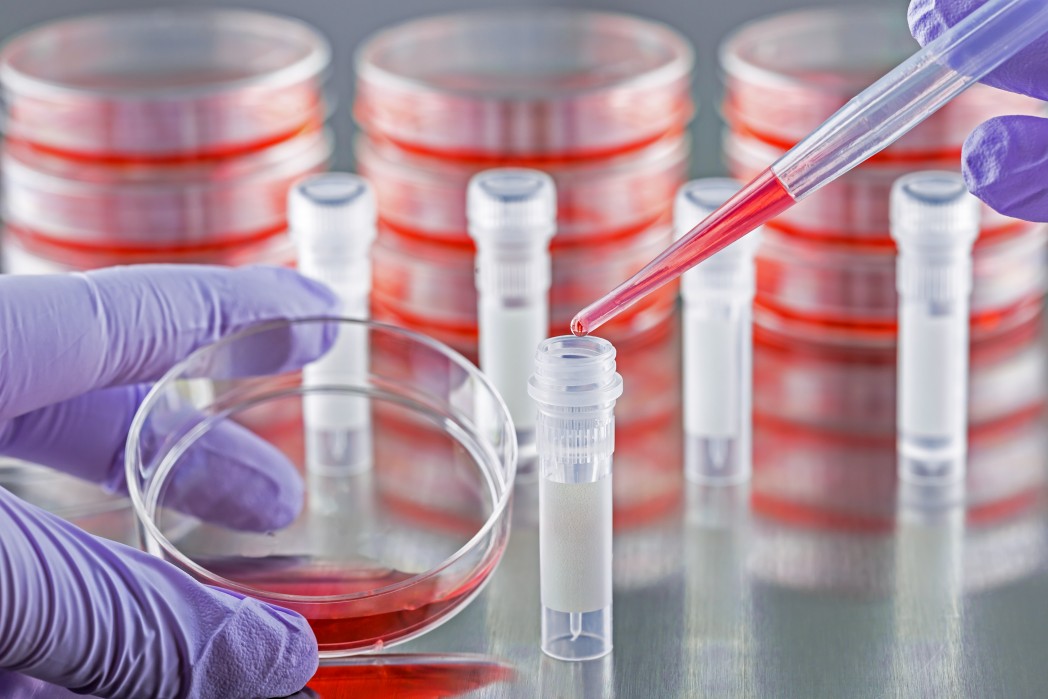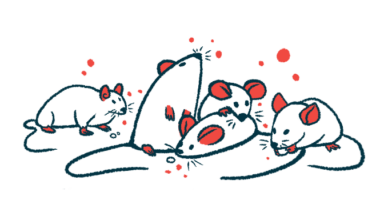BrainStorm Reports Positive Phase 2a Clinical Trial Results for NurOwn in ALS Treatment at a Scientific Meeting

BrainStorm Cell Therapeutics Inc. has presented promising results on the Phase 2a clinical trial of its product NurOwn® for amyotrophic lateral sclerosis (ALS) at the 67th American Academy of Neurology Annual Meeting, which took place this year in Washington D.C from April 18-25. The presented poster was entitled “Autologous Transplantation of Mesenchymal Stem Cells Secreting Neurotrophic Factors (NurOwn™) in ALS: Results of a Phase 2 Clinical Trial.”
ALS is a progressive neurodegenerative disease, characterized by the gradual degeneration and atrophy of motor neurons in the brain and spinal cord that are responsible for controlling voluntary muscles, such as the ones related to movement, speaking, eating, and even breathing. ALS patients may become totally paralyzed and the majority die due to respiratory failure.
NurOwn is an autologous (self-transplanted) adult stem cell therapy technology that can differentiate bone marrow-derived mesenchymal stem cells (MSC) into specialized, neuron-supporting cells (NTF). These cells can in turn secrete nerve-growth factors that protect the existing motor neurons, promote motor neuron growth and the re-establishment of the nerve-muscle interaction. NurOwn technology uses the patient’s own stem cells and has a high safety profile. The MSCs are isolated from the patient’s bone marrow, expanded and induced to differentiate into MSC-NTF cells; these cells with neuroprotective properties are then transplanted back into the patient.
In this Phase 2a trial (NCT01777646), the safety and efficacy of NurOwn transplantation was assessed in 14 ALS patients by intrathecal or intramuscular administration of a single dose of MSC-NTF. Three ascending doses were tested and patients were followed for six months.
Researchers found that six months after intrathecal treatment, ALS patients exhibited a statistically significant improvement in the estimated rate of decline in forced vital capacity (FVC; the amount of air which can be forcibly exhaled from the lungs after taking the deepest breath), and an improvement in the rate of decline in ALS Functional Rating Score-Revised (ALSFRS-R; a rating instrument for monitoring disability progression).
Intramuscular administration was also reported for the first time to have a positive effect, as one month after treatment researchers observed that the rate of decline in muscle mass in the right arm (where NurOwn® was administered) was improved in comparison to the left arm. It was also observed that treatment stabilized the compound motor axon potential in the right musculocutaneous nerve, while the left nerve experienced the typical deterioration seen in ALS.
“We have observed in our two studies clear indications that a single intrathecal administration of NurOwn® can induce clinically meaningful beneficial effects in ALS patients. In these studies, 88% of subjects with 3 months follow-up and 73% of those with six months follow-up responded to the cells, showing a post-treatment improvement in either ALSFRS-R or FVC, or both. We eagerly await the results of current and planned studies that will define the safety and efficacy profile of NurOwn®, and we are particularly hopeful that the administration of repeated doses will increase the magnitude or duration of benefit, or both,” said the study’s principal investigator Dr. Dimitrios Karussis in a news release.
“These results represent further validation for our NurOwn® platform. In this study, we observed a large and clinically meaningful benefit after treatment with NurOwn® (…) With our U.S. phase 2 trial now more than half-enrolled and a multi-dose study being planned, BrainStorm is well-positioned to confirm and extend these findings over the coming year,” concluded BrainStorm’s CEO Dr. Tony Fiorino.






